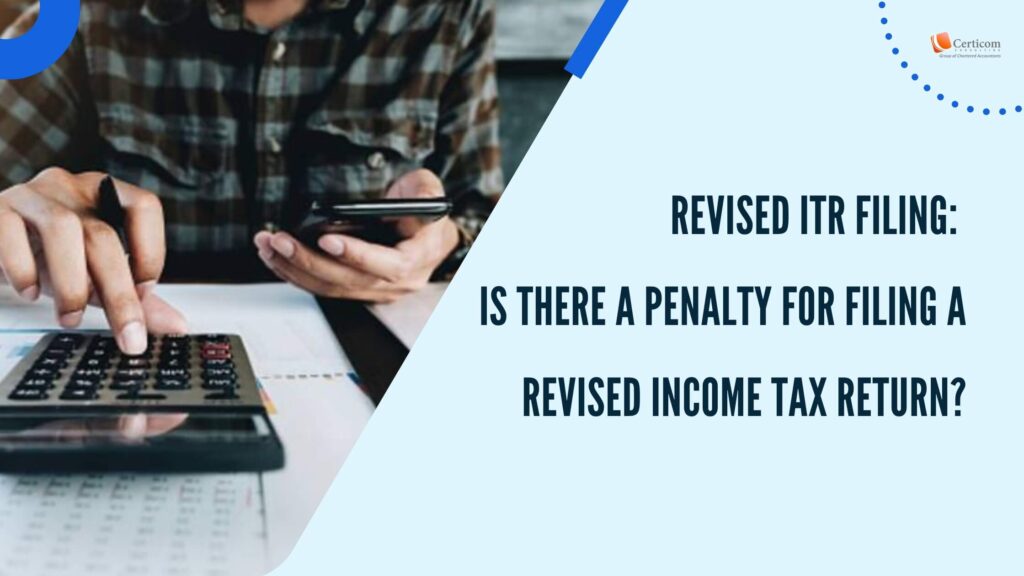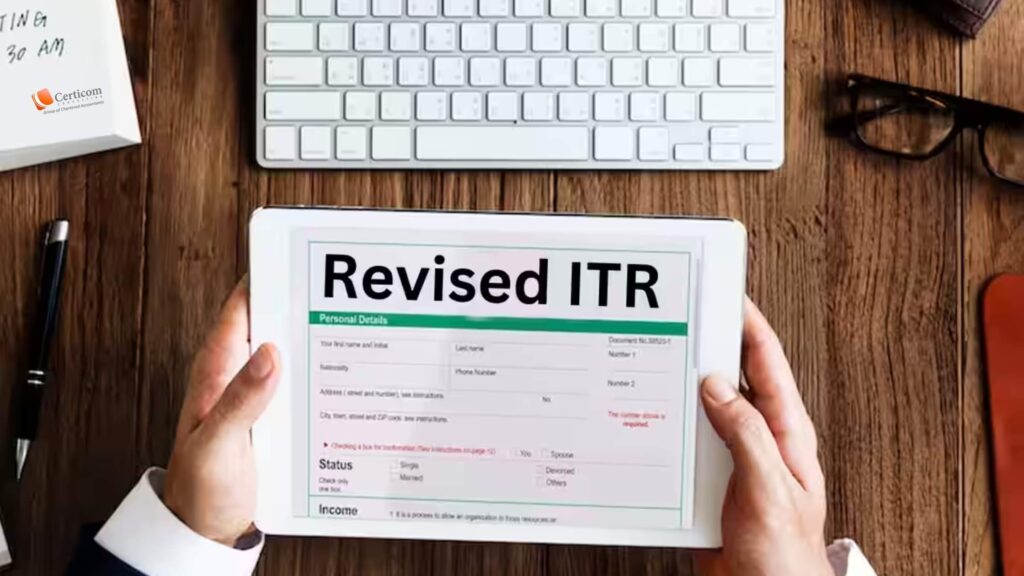Revised ITR filing: Is there a penalty for filing revised income tax return

The Income Tax Act, 1961 (henceforth referred to as the “IT Act”) permits taxpayers to submit an updated income return under section 139(5). The taxpayer may file such a return in the following situations:
Any mistake or omission that the taxpayer made while completing their initial income tax return is discovered by the taxpayer. This includes reporting inaccurate income, deductions, bank account information, personal information, and any other information.
The taxpayer acknowledges that, if the same could have been claimed at the time of filing the original return, he or she mistakenly overlooked certain income sources, neglected to include certain deductions or exemptions, or neglected to report and carry forward losses.
The taxpayer discovers that the income on Form 26AS/AIS and the initial income return do not match.

A taxpayer has 9 months from the end of the fiscal year to amend his return by December 31st of the relevant assessment year. As a result, for the Financial Year 2022–2023, taxpayers have until December 31, 2023, or nine months after the end of the Financial Year 2022–2023—to file a revised return.
Additionally, there are no additional penalties for filing a corrected return. However, depending on the change in income, there can be interest implications.
Additionally, subject to certain specified conditions, a taxpayer may provide an updated return of his income under section 139(8A) of the IT Act within 24 months of the assessment year’s end (i.e., 36 months of the financial year’s end). In the event of a search, survey, seizure, etc., the taxpayer would not be permitted to file an amended return, and it could not be a loss return.
Related Post
Top 7 Income Tax Errors That Invite IT Notices
Resident’s Guide to Buying NRI Property in India
Book A One To One Consultation Now For FREE
How can we help? *



